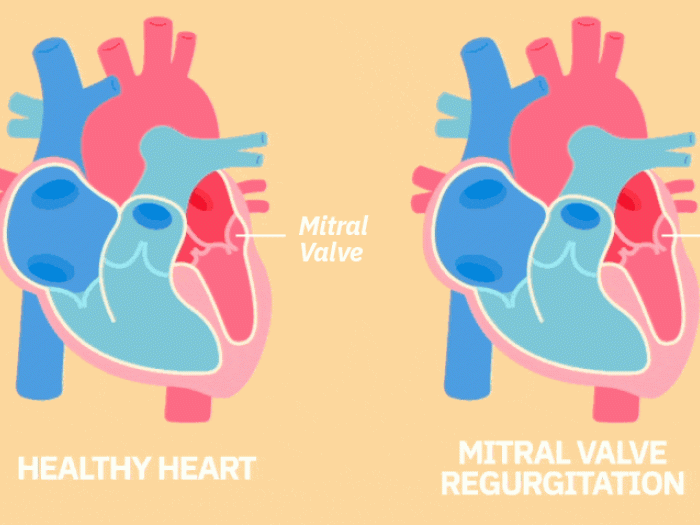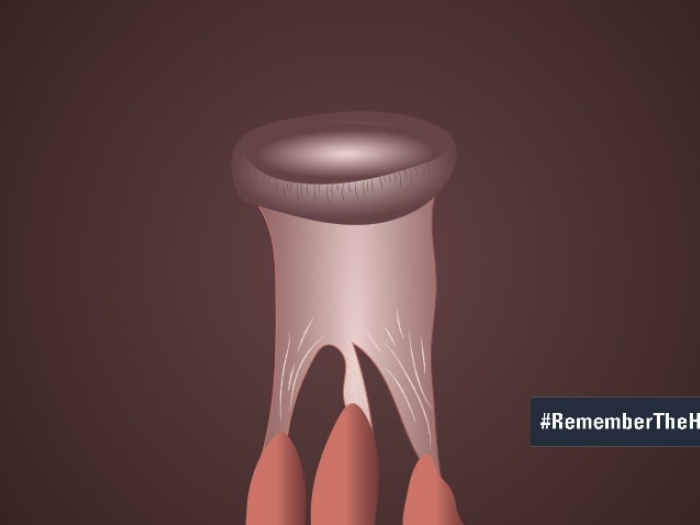An expert weighs in on what it means to have a heart murmur and when you should see a cardiologist.
9:39 AM
Author |

If you've been diagnosed with a heart murmur, there's no reason to panic. But it is something to pay attention to says Marguerite Krajacic, R.N., B.S.N., a registered nurse at the University of Michigan Health Frankel Cardiovascular Center who sees patients through the Comprehensive Heart Valve Program.
"A heart murmur is basically the irregular sound of blood flowing through the heart's valves — either the pulmonary, mitral, tricuspid or aortic valve — heard through a stethoscope," said Krajacic. Often described as a whooshing sound, a heart murmur can be congenital (present at birth) or can develop later in life.
While some heart murmurs are benign, or "innocent," and don't require medical treatment, others can be a sign of disease in one of the valves.
A heart murmur is typically the result of valve stenosis or regurgitation. In the case of stenosis, the valve becomes stiff and narrow, making it difficult for the heart to pump blood to the rest of the body. With regurgitation, the valve doesn't close all the way, allowing blood to flow back into the heart. As a result, the heart has to work harder.
SEE ALSO: Mitral Valve Repair vs Replacement - Mitral Valve Surgery
Murmurs can also be caused by conditions that temporarily increase blood flow, including exercise, pregnancy, overactive thyroid and fever.
"Most heart murmurs are diagnosed by your primary care physician," said Krajacic. If a murmur is detected, your doctor will typically order an echocardiogram, a non-invasive test that produces a detailed moving picture of the heart and its valves and gives baseline information. "Depending on the results, your doctor may refer you to a cardiologist for further evaluation."
What are the signs?
Symptoms of a heart murmur range from nothing at all to the following:
-
Shortness of breath
-
Fatigue
-
Fingertips and lips that appear bluish in color
-
Swelling or sudden weight gain
-
Chronic cough
-
Chest pain
-
Loss of balance
-
Fainting
Treating a heart murmur
Treatment of a heart murmur depends on the severity, says Krajacic.
Some patients have a murmur for nearly their entire life but don't need any type of treatment. Those with a mild or moderate condition may be regularly monitored by a primary physician or cardiologist with follow-up echocardiograms.
SEE ALSO: Why It's Better To Have Your Mitral Valve Repaired than Replaced
"When a patient experiences worsening symptoms related to their murmur, they need to be evaluated for more extensive treatment," said Krajacic. Patients with severe aortic stenosis may undergo a minimally invasive transcatheter aortic valve replacement procedure, also known TAVR. Open heart surgery may also be recommended to repair or replace a damaged valve.
Overall, says Krajacic, only a small percentage of patients need surgery.
"Of the 5% of the U.S. population diagnosed with mitral valve regurgitation, only 1% requires surgery. And if surgery is recommended, the earlier the better as repairing a mitral valve is always better than replacing it."
"Murmurs can disappear once the underlying condition that caused the murmur is fixed," said Krajacic. "Children diagnosed with a heart murmur at birth will often have it disappear as they approach adolescence. A new murmur during pregnancy can disappear after the baby is born and the mother's fluid status returns to normal."

Explore a variety of healthcare news & stories by visiting the Health Lab home page for more articles.

Department of Communication at Michigan Medicine
Want top health & research news weekly? Sign up for Health Lab’s newsletters today!





